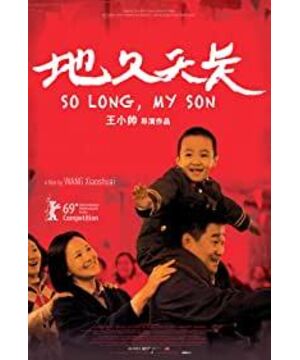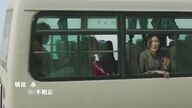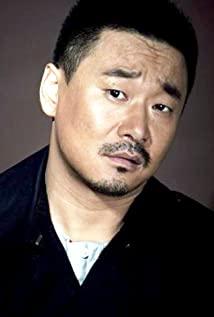After reading "Long Time", I remembered the ten years I spent by the Yangtze River. My family is in a third-tier factory in a small town in Hubei, on the edge of the Yangtze River. Those huge factories take on the functions of a city. There are canteens, schools, theaters, and lighting stadiums, which means almost all of my childhood. More importantly, every summer, like countless others, I grew up in the Yangtze River. This seemingly perfect life comes with a price - at least one child like me drowns in the Yangtze River every year.
I once wrote this story in the novel "Love at Atlantis": "The Yangtze River drowns people every year during the flood season, and those people have to float far downstream until they surface. If it is good enough, they will be able to retrieve their swollen and white bodies soaked in the river water. Many local people have seen such people drowned in the river on boats, unclaimed, all men face down, women face up, Rip up and down on the waves split by the river wheel, and move forward quietly." I wrote this at the beginning of the novel.
So, maybe this can explain why I like Wang Xiaoshuai's movies, and it can also explain why I am willing to spare the precious six hours of my life to go to the cinema to watch "As Long As Heaven" twice.
Because of the second brush, I saw the night when Yaojun and his wife returned their ID cards to their adopted son. They sat silently at both sides of the table. The next scene was the New Year's Eve after they lost the stars, sitting silently in the dark in the room.
I also saw Haohao telling them the last secret in that small room many years later. The next scene is when Yingming knocked on the door with a kitchen knife after the accident. Yaojun took the knife and told him not to be in Haohao in the future. A word in front of you.
Yaojun lost his star at the water's edge, lost his and Jasmine's second child, and the sea specially appeared in the background, and lost his adopted son at their house by the sea. After losing three children by the water, the film ends with the adopted son returning to his tiny house by the sea.
"Long Time" cross-edited five time points in thirty years, and finally got its magic when I brushed it for the second time. It shows us how man steps in the same river again and again in vain, pushing that stone like Sisyphus. And at the end of the film, we finally crossed the river, Sisyphus finally pushed the stone to the top of the mountain, and we finally reap the "consolation" of defeating fate.
Thirty years, five time-point cross-cuts, a three-hour movie, the amount of information is so large that I have to watch it again to understand what kind of story it tells.
Maybe have to watch it again.
This is a real story with Wang Xiaoshuai's personal logo. Here I want to emphasize the word truth in particular. First look at the rebels. In Wang Xiaoshuai's past films, the rebels were the motives for breaking the balance of the plot development, the rapist in "Qinghong", the arsonist in "Me 11", and the Guizhou child who burglarized and killed in "The Intruder". In "Long Time", there are three rebels: the adopted son, Xinjian and Jasmine. They rebel on three dimensions: identity, spirit and body. They have different ways of resisting: the adopted son's resistance is to oppose his father and run away from home, the new resistance is to wear a big back and bell-bottoms and dance a black dance, and Jasmine's resistance is to travel thousands of miles to the seaside in the south, wanting to use a child for Her sister, to make amends for this cannibalistic system.
Of course, in the end they all failed and compromised. This reminds me of a sentence in "Four Walls": Where there is oppression, there is patience.
Wang Xiaoshuai's lens language perfectly conforms to "art comes from life but is higher than life". When Yaojun rushed into the hospital holding the drowning star for the first time, with the arrival of death, a nurse in white appeared alone in the corridor, which constituted a strong contrast. Ostensibly this nurse is there inadvertently, but through the gaze of the camera, her metaphor becomes so apparent. Liyun's abortion is still a familiar hospital, and as a result, the hospital has become a sign of death.
Also, Yaojun carried his son and he drove to see Jasmine, all of them passed through the tunnel. The darkness of the tunnel and the little light at the end are also textbook-like compositions.
On the surface, Liyun did not resist. When she stands in front of the huge rotating drum of the factory, we already know this person's life: she will be crushed by such a drum that symbolizes the system.
But in fact Liyun's resistance was her suicide. After experiencing an abortion, being laid off, losing her child, being far away from her hometown, and facing her husband's derailment in silence, this is almost the only time she took the initiative to choose. Liyun once lived for the stars, once for his adopted son, and once for Yaojun. When she chose to commit suicide, she had already told the world: I am tired, I don't want to live for others anymore.
It's cruel, but that's the reality in a lot of Chinese movies. Liu Feng in "Youth" was left alone in the encounter, with only one flamethrower at hand, which was also the death he voluntarily chose. Even in reality, this is the choice of many Chinese people. Do you still remember Lao She at the bottom of Weiming Lake?
After talking about the resisters, let's look at the fate of those who do not resist.
Haiyan, who was conscientious in her work and never raised the muzzle of her gun, finally decided to retire internally. She was rescued in the hospital, but Yingming was socializing in a restaurant. Such a relationship between husband and wife has already been separated from each other, and Haiyan's life is undoubtedly a failure. And what Haiyan said to Liyun before her death was, "We are rich, you can have a baby." Yingming's compensation plan for Yaojun was also "you can choose one of my properties", which clearly expressed Wang Xiaoshuai's resistance. The values of the planning system and the value judgments of vested interests.
As for Yaojun, just like the protagonist in Wang Xiaoshuai's previous films, he is just an experiencer, a faithful observer, and he is also extremely real. The scene showing his inner turmoil, except that he banged his head against the wall after trying to stop the family planning cadres from taking Liyun, was the moment when Jasmine said in the video that she had a child: Yaojun's expression seemed embarrassed, but when he found out that Jasmine's child After it wasn't his, his expression turned to loss again. This moment made this character stand up, and we immediately understood the derailment, selfishness and duplicity under the guise of Yaojun's moral perfection that "moved China" on the surface.
This is a real person. Because of this scene, the movie "Long Time" has reached a new height.
Of course, the loss of losing the child again is immediately filled by the "return" of the adopted son, and the film ends here, leaving everyone a warm tail. Commercially, this treatment can be given full marks.
Foreigners have very poisonous eyes, and they can see the essence of modern Chinese "culture" at a glance. The Cultural Revolution in "The Three-Body Problem", the family planning in "Frog", the family planning and layoffs of state-owned enterprise workers in "Long Time". These "essences" have brought us the Hugo Award, the Nobel Prize in Literature and the Silver Bear.
These are the kiwi fruit of the planning system, and the movies that other socialist countries have most moved us are also "The Wiretap" and "Goodbye Lenin." If there is a Judgment Day, then the greatest contribution to human society brought by socialism may be finally judged as these "great" literary and artistic works.
The work is "great", and the price is huge and cruel. For example, Weissler's muzzle raised an inch in "The Wiretap" does not actually exist in reality. The film used many of the original East German office buildings to shoot on the spot, but the director of the prison museum refused to shoot the request. Because the curator thinks the film is not real - in the whole history of East Germany, there is not a single secret police "conscience discovered" like Weissler.
From this point of view, "Long Time" is more real. The family-planning cadre who killed his best friend's child, felt guilty for the evil he had done for the rest of his life, and became the only adult who died in the film. This role is not dead, to some extent, it means Wang Xiaoshuai's attitude towards this former "basic national policy".
I don't know if it's sad or gratifying, but the people in "Long Time" once believed in this state machine, believed in the planning system, and believed that a happy future could be planned for them. In the movie, Yaojun's cell phone ringtone is Mozart's Symphony No. 40, and it is also SHE's "Don't Want to Grow Up". The subtext in it is self-evident, and the reason why they don't want to grow up is definitely not because of the poor material at that time. , conditions, but everyone's sincere friendship and absolute confidence in what they are doing.
In contrast, capitalism is really weak. From "Manchester by the Sea" to "Big Brother Tangshan", it is only the injury of the individual to the individual, and the planning system is the encirclement, pursuit and interception of the individual by the entire state apparatus. Of course, there are also examples like "Green Book" where the whole country persecuted individuals, but the more in the context of this kind of oppression, the more exciting the protagonist's resistance to the system is. The climax of these films is the shooting of the protagonist. Bruce Lee's furious fly-legs and Dr. Shirley's refusal to perform are just as exciting. And what about our resistance? It may have long been castrated from contemporary literary and artistic works, and only exists in Jin Yong's martial arts world. It's just that even Chen Sheng and Wu Guang have disappeared from the textbooks. How long is Jin Yong's martial arts world allowed to exist?
In "The Intruder", when the elderly from the third-tier factories were gathering, a person with a Shanghai accent said something: I told my son that after my death, the ashes should not be buried in Shanghai, nor here. (Guizhou), just sprinkle it in the sky...
In my opinion, this is also a more tragic revolt than suicide, and the only weapon of revolt is one's own ashes. In the beginning, the weapon we fought against was our fist, then our hairstyle, our trousers, and then our womb. Then, it's our exile, it's death, and finally, it's our ashes.
View more about So Long, My Son reviews









